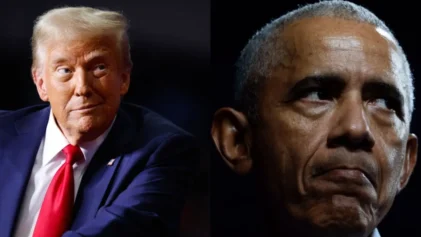The fight against Muslim extremists in northern Mali has reached such a critical point that President Obama sent U.S. Secretary of State Hillary Clinton to Algeria to talk to Algerian President Abdelaziz Bouteflika about backing West African efforts to stop Al-Qaeda in the region.
The terrorist group al-Qaida in the Islamic Maghreb, known as AQIM, has imposed a strict version of sharia law on the region after it toppled the government in Bamako in a March coup.
According to Clinton, AQIM is working with other extremists to undermine democratic transitions in North Africa, and played a role in the September attack on the U.S. mission in the Libyan city of Benghazi that killed Ambassador Chris Stevens and three other Americans.
“I very much appreciated the president’s analysis, based on his long experience, as to the many complicated factors that have to be addressed to deal with the internal insecurity in Mali and the terrorist and drug-trafficking threat that is posed to the region and beyond,” said Clinton.
A senior U.S. official traveling with the secretary of state told the Voice of America that “a whole range of countries in the region really look to Algeria for leadership on this. They know Algeria has unique capability that no one else in the region really has, including the strength of their military and intelligence gathering.”
The United States has been in talks with France to take steps to bring the region back under the control of the country’s central government. France has begun sending in drones to do surveillance missions in northern Mali because it is extremely remote. Pentagon officials have said the U.S. has also been using drones for several months to assess the situation.
When the UN Assistant Secretary-General for Human Rights Ivan Simonovic returned from Mali two weeks ago, he reported to the world community that Islamist militias had imposed a harsh version of Sharia law on the areas they controlled, drastically affecting the lives of women in particular. Mali residents in the north told him of forced marriages, forced prostitution, widespread rape, and women being sold as “wives” for less than $1,000.
Rebels also stoned to death an unwed couple and amputated the hand of an alleged thief. They have also destroyed half of the World Heritage-listed tombs and mausoleums in the town of Timbuktu, claiming they violated Sharia law and promoted idolatry among Muslims. In the view of the UN, the destruction of the shrines could be considered war crimes; the International Criminal Court has launched a preliminary inquiry into the alleged atrocities.
The Economic Community of West African States is reportedly working with Mali’s transitional leaders on plans for a regional force that would help Mali’s military retake northern areas controlled by Islamic militia and ethnic-Tuareg rebels.
The force would be modeled after the one currently at work in Somalia, an African-led mission backed by the international community in training, intelligence, and logistics.
The nation of Mali has an incredibly rich history. In fact, Mansa Musa I, who ruled the Mali Empire in 1280 and was estimated to have been worth the equivalent of $400 billion in today’s cash money, was recently chosen by Celebritynetworth.com as the richest man in history. Emperor Musa controlled what is now the West African regions of Timbuktu, Ghana and Mali.
During Musa’s time, that area was the leader in providing the world’s salt and gold.
When Musa, a devout Muslim, made his pilgrimage to Mecca, he rolled out with 60,000 men and 12,000 slaves who all carried 4-lb. gold bars. Along the way, the emperor took care of all meals and incidentals including some 80 camels who bore between 50 and 300 pounds of gold dust each. And along the way, he handed out gold to any poor people he encountered.


